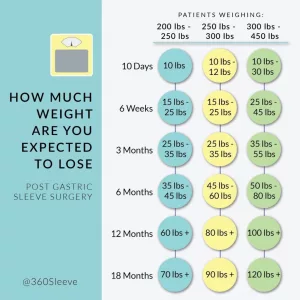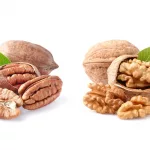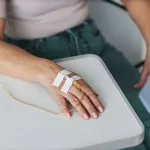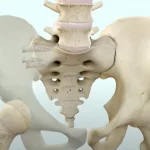Hey there! If you’re reading this, you probably take levothyroxine or know someone who does. You might have heard “take it on an empty stomach” and wondered why that matters. The short answer: food can literally mess with how well your thyroid medication works. Below you’ll find the straight‑to‑the‑point facts, friendly tips, and a few real‑life stories to help you master levothyroxine timing and keep your thyroid humming.
Quick Takeaway Summary
Bottom line: Levothyroxine should be taken on an empty stomach – ideally 30‑60 minutes before breakfast or at least 3 hours after a big meal. Skip calcium‑rich dairy, soy, iron, high‑fiber foods, walnuts, grapefruit, and even multivitamins with minerals for about 4 hours after your dose. Doing so helps the drug absorb properly and avoids the frustrating fatigue, weight changes, or abnormal lab results that can happen when absorption drops.
How Absorption Works
What Happens in Your Gut?
When you swallow a levothyroxine tablet, it dissolves in the acidic environment of your stomach and moves into the duodenum, the first part of the small intestine. Here, the hormone is absorbed into the bloodstream through tiny cells lining the gut wall. The process works best when the surrounding environment is relatively clear of competing substances.
Why Food Can Be a Roadblock
Many foods and supplements contain minerals like calcium, iron, and magnesium that bind to levothyroxine, forming an insoluble complex that your body can’t use. High‑fiber foods can trap the medication in the gut, while fatty meals slow gastric emptying, giving the drug more time to mingle with those binding agents. In short, certain foods act like a “traffic jam” for your medication.
Evidence Check
According to Drugs.com, foods such as soybean flour, cotton‑seed meal, walnuts, dietary fiber, calcium, calcium‑fortified juices, and grapefruit juice can decrease or delay levothyroxine absorption. This interaction is classified as moderate but can be clinically significant if you’re not careful.
Foods To Avoid
| Food / Drink | Why It Interferes | Wait Time After Dose |
|---|---|---|
| Soy products (tofu, soy milk, soy protein bars) | High phytoestrogen & fiber bind the hormone | 4 hours |
| Calcium‑rich foods (milk, cheese, fortified orange juice) | Calcium chelates levothyroxine | 4 hours |
| Iron‑rich foods or supplements | Forms insoluble complexes | 4 hours |
| High‑fiber meals (bran, oats, whole‑grain cereals) | Traps drug in intestinal lumen | 2‑3 hours |
| Walnuts & other nuts | Similar to soy – high fat & fiber | 3 hours |
| Grapefruit or grapefruit juice | Delays gastric emptying & enzyme inhibition | 4 hours |
| Coffee (especially within 30 min) | Boosts gastric motility, lowers bioavailability | 30 minutes‑1 hour |
Soy & Thyroid Meds – Myth vs. Fact
I once swapped my morning oatmeal for a soy‑protein smoothie because “it’s healthier”. Within a week, my energy tanked, and my doctor’s labs showed a higher TSH than usual. The culprit? The soy was hitching a ride with my levothyroxine. After moving the smoothie to later in the day and keeping my tablet with a glass of water, my numbers steadied. The lesson? Even “healthy” foods can be troublemakers if they share the same timing window.
Timing & Dosing
Ideal Schedule – The Empty‑Stomach Rule
Picture your morning routine: toothbrush, splash of water, then a glass of water with your levothyroxine pill. Wait 30‑60 minutes before you pour coffee or toast. If you’re a night owl, taking the pill right after you brush your teeth before bed works too – just be sure you haven’t eaten a late‑night snack within the next three hours.
Water‑Only, Not Soda
Carbonated drinks, especially those with phosphoric acid, can further hinder absorption. Stick to plain water; it’s the cheapest, healthiest, and most reliable carrier for your medication.
When You Must Take It With Food
Sometimes nausea forces you to pair the pill with a little something. In that case, consider a liquid formulation like Tirosint. Liquid levothyroxine is less sensitive to food, although an empty‑stomach window still gives the best results.
Morning vs. Evening Dosing – Quick Comparison
Morning: Fits naturally with daily routines; easier to remember. Evening: Useful for night‑shift workers or when breakfast is unpredictable. Choose what feels sustainable for you.
Multivitamins & Minerals
Which Minerals Are the Worst?
Calcium, iron, magnesium, zinc, and copper are the main offenders. They each love to bind with levothyroxine, turning it into a “ghost” that your body can’t detect.
How Long to Separate?
Keep a 4‑hour gap between your thyroid tablet and any multivitamin that contains minerals. This timing is backed by the same Drugs.com data that flags a moderate interaction.
Safe Supplement Combinations
Vitamin D, omega‑3s, and B‑complex vitamins without minerals generally pose no problem. If you love a daily gummy, check the label – most chewables are free of calcium or iron.
Supplement Interaction Table
| Supplement | Interaction | Recommended Wait Time |
|---|---|---|
| Calcium (500 mg) | Reduces levothyroxine absorption | ≥ 4 hours |
| Iron (65 mg) | Forms insoluble complex | ≥ 4 hours |
| Magnesium (250 mg) | Decreases bioavailability | ≥ 4 hours |
| Vitamin D (1000 IU) | No known effect | None needed |
| Omega‑3 fish oil | Minimal impact | None needed |
Real‑World Experiences
“I Added Soy Milk to My Breakfast and Felt Sluggish”
Maria, 42, switched to soy milk after reading a trendy health blog. Within two weeks, her fatigue returned despite taking her regular levothyroxine dose. A simple blood test showed her TSH had risen from 2.1 to 4.7 mU/L. After moving the soy milk to after lunch and keeping her pill with water on an empty stomach, her TSH dipped back to the ideal range. “I thought I was being healthier,” she laughs, “but my thyroid had other plans!”
Clinician Perspective
Dr. James Patel, an endocrinologist with 15 years of experience, says, “Whenever a patient changes their calcium intake—whether from a new supplement or a dairy‑rich diet—we re‑check TSH within six weeks. Small dietary shifts can cause a 30 % swing in levothyroxine absorption, which is enough to make symptoms flare up.” (A systematic review by Liu et al., 2023, highlighted diet as a frequent source of variability in levothyroxine bioavailability.)
Bottom Line Checklist
- Take levothyroxine 30‑60 minutes before any food or at least 3 hours after a meal.
- Avoid soy, calcium‑rich dairy, iron, high‑fiber meals, walnuts, and grapefruit within 4 hours of dosing.
- Separate multivitamins/minerals by a minimum of 4 hours.
- Use plain water only; skip coffee, soda, or alcohol for the first hour.
- If you must eat, consider a liquid levothyroxine formulation.
- Keep a consistent daily routine—set a reminder on your phone if needed.
- Schedule a TSH re‑check after any major diet or supplement change.
How to Talk to Your Doctor About Levothyroxine & Diet
Bring a short food‑log (two weeks works) to your next appointment. Highlight any recent additions—like a new protein shake or a calcium supplement. Ask your provider to review your TSH results after the change and discuss whether a different formulation (soft‑gel, liquid) might suit your lifestyle better.
If you’re ever unsure, remember that a quick call to your pharmacy can clarify timing questions. Your healthcare team wants you to feel your best, and a few minutes of conversation can prevent months of frustration.
Sources & Further Reading
Drugs.com – detailed interaction list for levothyroxine and common foods/minerals.
Hanqing Liu et al., “Medications and Food Interfering with the Bioavailability of Levothyroxine: A Systematic Review,” Therapeutics and Clinical Risk Management, 2023.
American Thyroid Association – Guidelines on levothyroxine administration (available on their official website).
Thanks for sticking with me through the science, the tables, and the anecdotes. Managing levothyroxine isn’t about strict rules; it’s about finding a rhythm that works for you. Have you discovered any surprising food interactions? Share your story in the comments—your experience could help someone else get back on track.

























Leave a Reply
You must be logged in to post a comment.